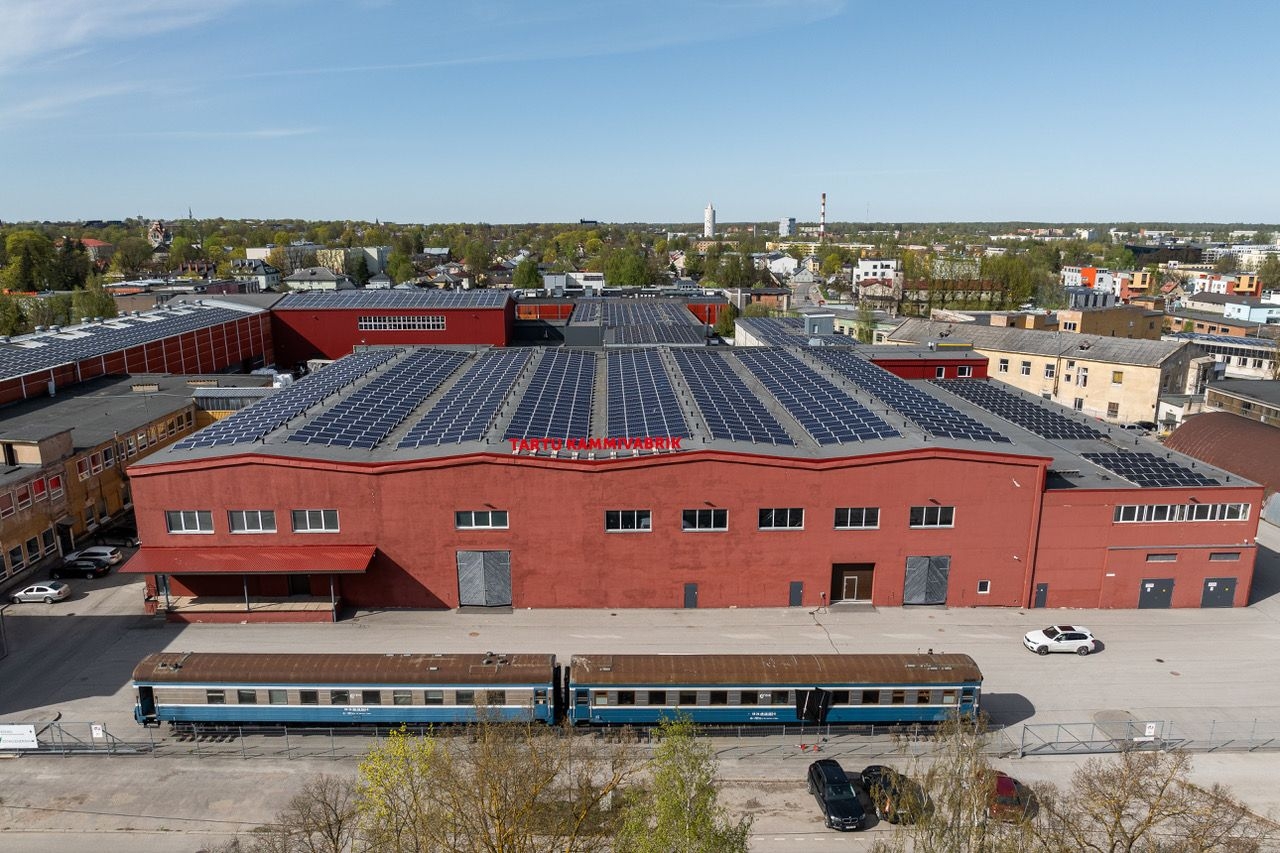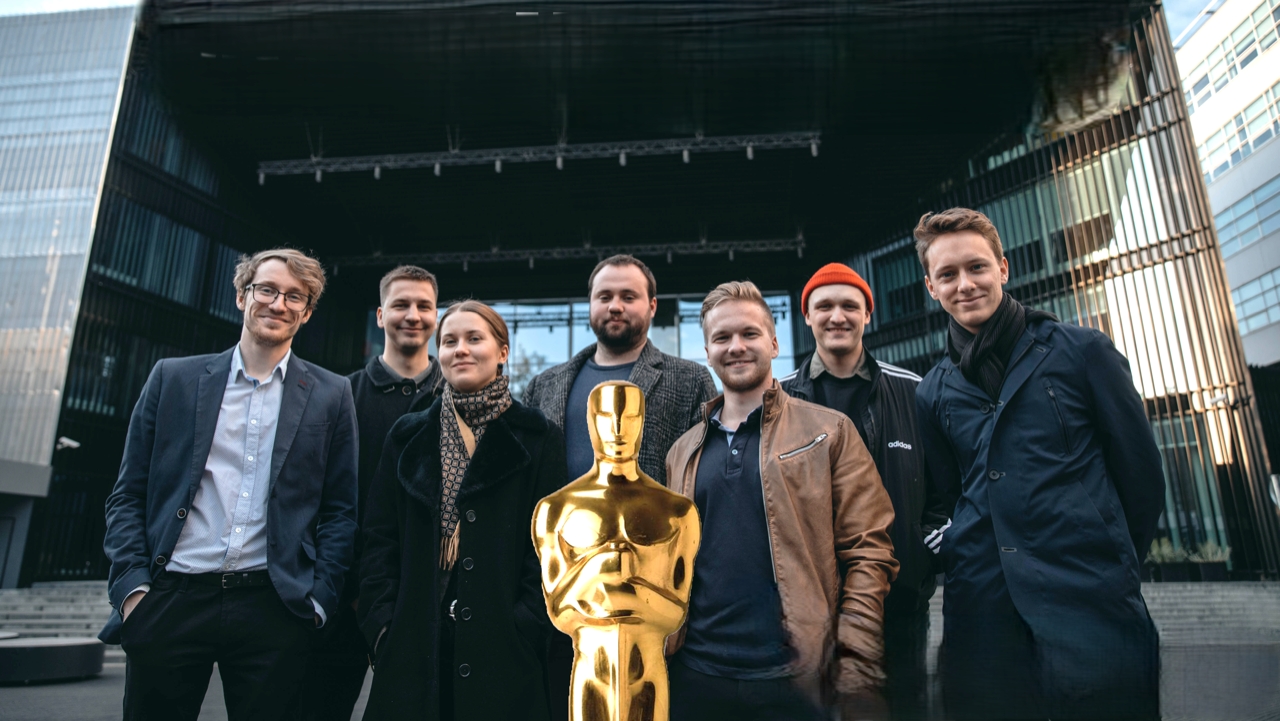
Signe Somelar-Erikson and Külli Hansen talk to the young and ambitious producer Sander Leberecht about filmmaking possibilities in South Estonia.
Sander, you were born in Võru, studied at Tallinn University’s Baltic Film, Media, Arts, and Communication School, and now you are back in Tartu. Tell us how you got into filmmaking and why you came back to Tartu?
After my time in the military, I began studying cyber-physical systems engineering. Alongside my studies, I also worked at a dance school. At one point, I started looking for ways to combine different fields, and while editing a dance video, I had my "Eureka!" moment: I discovered filmmaking.
I was born in Võru and went to Tallinn primarily for my studies, and it was natural to stay there afterward, as most of the film industry is located in the capital. However, my heart was still drawn back to Tartu, though I didn’t dare to make that decision just yet. That changed the day our daughter Elaysa was born. We’ve lived in Tartu for five months now, and I can say that it was the second-best decision I’ve ever made. The best was asking my wife to marry me!
You’ve been involved in various productions, including Tenet (2020) and Omerta 6/12 (2021), but your student film My Dear Corpses has been your most successful so far, winning an Oscar at the Student Academy Awards in 2020. What impact did this have on you?
When our film won the Student Oscar, I was just getting started. Normally, student films only reach teachers and friends, but My Dear Corpses gained international attention. The award gave me the opportunity to delve into the intricacies of international film distribution and funding.
You’ve worked as a producer, director, screenwriter, production manager, and location coordinator. Is it common
The small size and fast pace of our film industry often require people to take on different roles. Although I’ve tried my hand in various areas, my primary passion is producing. Producers are often the only ones who stay with a project from start to finish. It means having the ability to understand what people might want to watch 5-10 years from now, leading a team to the finish line, and also having the capability to sell the film to the audience once it’s completed. It's quite a challenge, but that makes the process all the more enjoyable.

Hollywood location scouts who visited Southern Estonia in the summer of 2023 said the area is intriguing for filmmaking for many reasons, from Soviet-era architecture to diverse natural landscapes and unique cultural elements. Film critic Tristan Priimägi has noted that filmmakers come to Estonia seeking exoticism and marginality; no one comes here to film normalcy. They’re looking for something odd, and that could be our trademark. Do you see that in South Estonia?
Oddness seem to be valuable niche in a globalized world because it offers something fresh. The film Smoke Sauna Sisterhood, shot in Võru county and based on the regions’ smoke sauna tradition, is a prime example. 8 Views of Lake Biwa, Estonia’s Oscar nominee for 2025, was largely filmed by Lake Peipsi, where a unique blend of cultures can be seen – something hard to find elsewhere in Estonia. Authenticity, natural diversity – all can be found here. South Estonia is like the bottom of the ocean or the surface of the moon – full of hidden treasures waiting to be explored.
What are your professional plans in Tartu?
I want to make Tartu the new film capital of Estonia! There’s a growing pool of professional film crews here, along with supporting industries: equipment rental, film studio, location mapping, etc. When talking to filmmakers, many express a desire to move out of Tallinn, but the film industry’s capital-centric nature holds them back. I’m sure that will change.
You’re also leading the development of a film studio in Tartu – why did you take on this project?
A film studio is like a landmark that shows we’re taking the film industry seriously. Whether or not foreign partners bring their projects here partly depends on having a studio available. The factory hall at Tartu’s Comb Factory can already be used as a studio. The plan is to establish supporting facilities for makeup and costumes, as well as production offices and spaces for equipment rental.
What value do you see in the Tartu Film Fund?
The greatest value, for me, lies in the fast communication and willingness to help find local partners or people with various skills for film shoots. The people at the Tartu Film Fund are constantly ready to communicate with filmmakers, organize events, and raise awareness – that’s a huge asset because the film industry largely relies on personal relationships.

Tartu Film Fund
Region: South - Estonia (Jõgeva, Tartu, Põlva, Valga, and Võru counties)
Support intensity: up to 35% of eligible expenses in the region
tartufilmfund.ee
The interview was published in the Estonian Film Magazine 3/2024. Read the magazine here